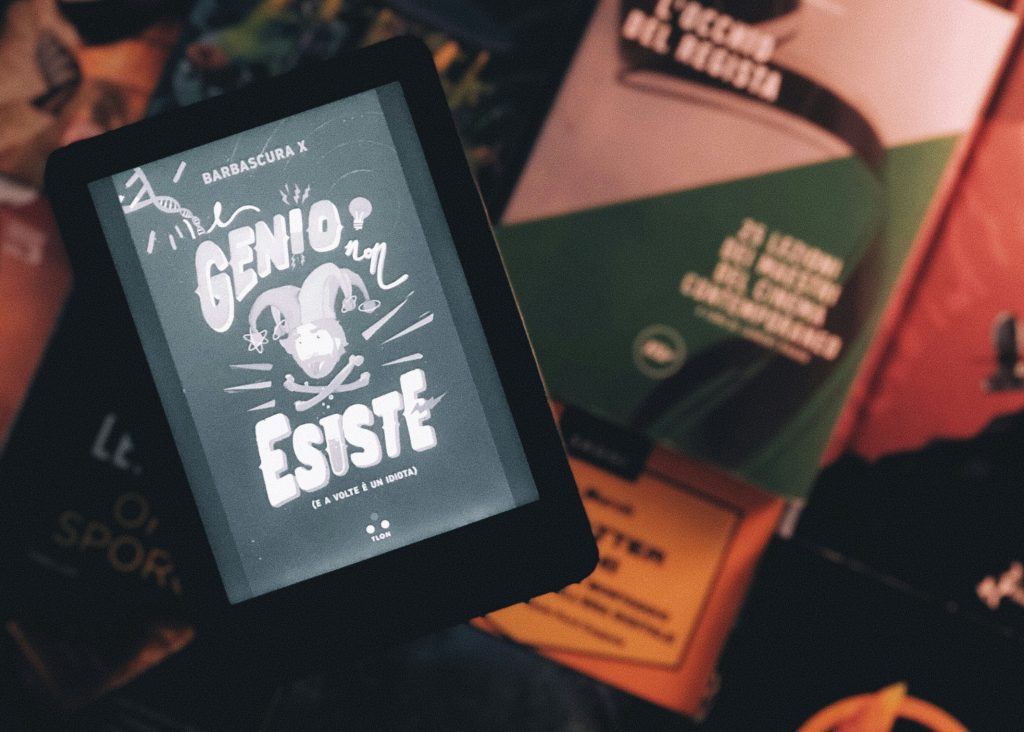Top Digital Publishing Platforms for Portuguese Authors in 2025
Introduction
The publishing industry has undergone a profound digital transformation in the past two decades, giving authors new ways to connect with readers across the globe. For Portuguese authors, this shift holds unique relevance. While traditional publishing remains strong in Portugal and Brazil, the rise of e-books, audiobooks, and online communities has opened doors to an international audience of over 260 million Portuguese speakers worldwide.
The purpose of this article is to highlight the most effective digital platforms available for Portuguese writers who wish to publish and promote their work. From international self-publishing giants like Amazon Kindle Direct Publishing to localized platforms such as Porto Editora Digital and Leya, authors today have a wide range of options. We will explore how these platforms support accessibility, global reach, and features tailored specifically to Portuguese-language content.
By mapping these tools and opportunities, this article provides a clear roadmap for authors seeking to strengthen their literary presence in both Lusophone and international markets.
Digital Publishing Platforms
Global Platforms with Portuguese Support
One of the most significant advantages of digital publishing is that global platforms now offer strong support for Portuguese-language works.
Amazon Kindle Direct Publishing (KDP) remains the most popular choice for independent authors. It allows writers to publish e-books and paperbacks with worldwide distribution, including tailored storefronts for Portugal and Brazil. Authors can choose royalty rates of up to 70% and benefit from localized tools such as Portuguese-language metadata and keyword optimization.
Kobo Writing Life is another valuable platform that distributes e-books to international markets. For Portuguese authors, it holds a distinct advantage through its partnerships with major Portuguese retailers like Fnac, ensuring local visibility alongside global access.
Apple Books provides a seamless self-publishing experience with global catalog integration and multimedia support, making it suitable for authors who wish to explore more interactive formats. Its Portuguese-language interface and regional promotions help writers connect with local readers effectively.
Google Play Books, integrated into the Android ecosystem, offers a straightforward upload process and wide availability. Portuguese-speaking authors benefit from its presence not only in Portugal and Brazil but also in Lusophone Africa, where digital reading is steadily growing.
Portuguese-Specific Platforms
In addition to global platforms, Portuguese publishers have developed strong digital divisions to support local authors.
Porto Editora Digital combines traditional publishing strengths with digital distribution. It serves Portugal and several PALOP countries, providing hybrid publishing opportunities. Authors can access professional services like editing, formatting, and marketing, which make it an appealing option for those seeking additional support.
Leya, one of Portugal’s largest publishing groups, has embraced e-books and audiobooks, partnering with major online retailers such as Wook. Its focus on Portuguese-speaking markets, including Brazil and Angola, makes it an excellent choice for writers targeting Lusophone audiences.
Bookwire Portugal acts as a distribution aggregator, delivering books to major international retailers such as Amazon and Apple. It provides analytics tools, localized metadata, and simplified tax handling for Portuguese authors, allowing them to manage their works more efficiently.
Emerging & Niche Platforms
Some platforms focus more on community engagement and accessibility rather than large-scale publishing.
Wattpad is widely used by emerging Portuguese writers who want to share their stories in serial format. With active communities in both Brazil and Portugal, Wattpad offers valuable exposure and, in some cases, the chance for publishing deals.
Draft2Digital is another practical option, particularly for authors who want minimal technical challenges. It provides automated formatting and distributes to a wide range of retailers, including platforms that reach Portuguese readers.
Digital Promotion Platforms
Social Media & Community Platforms
Promotion is just as important as publishing, and social media provides powerful tools for Portuguese authors.
Facebook and Instagram allow writers to create dedicated author pages, run targeted ad campaigns, and host virtual book launch events. These platforms remain particularly influential in Portugal and Brazil, where user engagement is high.
(X) is useful for real-time interaction, hashtag campaigns such as #LivrosPortugueses, and connecting with international book communities.
TikTok, through the popular BookTok community, has quickly become a game-changer for book discovery. Portuguese-speaking authors are increasingly finding success by sharing short-form video content that resonates with readers in both Portugal and Brazil.
Goodreads remains essential for building credibility. Authors can create detailed profiles, interact with readers through Q\&A sessions, and encourage reviews, all while benefiting from Portuguese-language listings and reader groups.
Author-Centric Tools
Beyond social media, authors can strengthen their digital presence through personalized strategies.
A personal website or blog, created with platforms like WordPress or Wix, provides a professional space for direct sales, newsletters, and content marketing. By optimizing SEO with Portuguese keywords, authors can attract both local and global audiences.
Email marketing platforms such as Mailchimp or Substack are highly effective for building loyal readerships. Sending regular updates, exclusive previews, or Portuguese-language newsletters helps maintain engagement.
Book discovery platforms also play a vital role. BookBub, for example, allows authors to promote deals and target Portuguese-language readers. Similarly, Amazon Author Central gives writers a centralized place to manage their profiles across all Amazon marketplaces.
Retailer-Specific Promotion
Retailers themselves provide specialized marketing opportunities.
Amazon Marketing Services (AMS) offers sponsored ads and keyword targeting, enabling Portuguese authors to boost visibility directly within Amazon’s ecosystem.
Kobo Promotions allow writers to run discount campaigns or secure homepage placements in Portuguese regions, increasing their chances of reaching new readers.
Challenges & Opportunities
Challenges
Despite the advantages, digital publishing also brings challenges. Market fragmentation remains a hurdle, as Portuguese-speaking audiences are spread across Portugal, Brazil, and various African nations with distinct preferences. Discoverability can also be difficult due to competition with global bestsellers and translated works.
Technical barriers, such as English-dominant interfaces on many platforms, can discourage new authors. Additionally, piracy continues to be a concern, as unauthorized distribution of e-books affects both revenue and visibility.
Opportunities
The opportunities, however, far outweigh the challenges. With over 260 million Portuguese speakers worldwide, authors can reach a vast international audience. Digital platforms also give writers creative control, allowing them to publish without traditional gatekeepers.
Publishing digitally is cost-efficient, with lower upfront investments compared to print. Moreover, platforms now provide data-driven insights, enabling authors to refine their strategies, improve targeting, and maximize sales potential.
Conclusion
Portuguese authors today have more digital opportunities than ever before. From global publishing platforms like Amazon KDP and Kobo Writing Life to localized services such as Porto Editora Digital and Leya, the range of options is extensive. Promotional tools—from social media to retailer advertising—further enhance an author’s ability to connect with readers.
To succeed, authors should carefully choose platforms based on their target audience, whether focusing on Portugal, Brazil, or a broader Lusophone readership. Looking ahead, the future of digital publishing for Portuguese writers will continue to expand through audiobooks, AI-driven marketing, and growing access in emerging markets.
By embracing these platforms strategically, Portuguese authors can secure both local recognition and global reach, positioning themselves strongly in an increasingly digital literary landscape.
Key Takeaways
- Portuguese authors now have access to powerful digital publishing platforms, both global (Amazon KDP, Kobo, Apple Books, Google Play Books) and local (Porto Editora Digital, Leya, Bookwire Portugal).
- Global reach is possible while still targeting Lusophone markets, with tailored tools for Portuguese-language content.
- Emerging platforms like Wattpad and Draft2Digital provide accessible options for new or independent authors.
- Promotion is crucial, with social media platforms (Facebook, Instagram, TikTok, Goodreads) and author-centric tools (websites, blogs, newsletters) offering effective ways to engage readers.
- Retailers such as Amazon and Kobo provide direct marketing tools to boost visibility in Portuguese-speaking regions.
- Key challenges include market fragmentation, discoverability, piracy, and technical barriers, but opportunities for global readership and creative independence remain significant.
FAQs
What are the best digital publishing platforms for Portuguese authors?
Portuguese authors benefit from both global platforms like Amazon KDP, Kobo Writing Life, Apple Books, and Google Play Books, as well as local options such as Porto Editora Digital, Leya, and Bookwire Portugal. These platforms provide global reach, localized tools, and support for Portuguese-language content.
How can Portuguese authors effectively promote their books online?
Promotion works best through social media platforms like Instagram, TikTok’s BookTok community, and Goodreads for reviews and reader interaction. Authors can also use personal websites, email newsletters, and retailer-specific tools like Amazon Marketing Services and Kobo Promotions to expand visibility and connect with their audiences.
What challenges and opportunities exist in digital publishing for Portuguese writers?
Challenges include audience fragmentation across regions, discoverability issues, piracy, and technical barriers. However, opportunities are greater—authors can reach 260+ million Portuguese speakers worldwide, retain creative control, and benefit from affordable publishing costs and data-driven marketing insights that enhance both global reach and long-term reader engagement.
The journey of Portuguese literature into English reveals more than translation—it uncovers cultural exchange, creativity, and universal themes. This article explores the works that made an impact and continue to inspire global readers.









